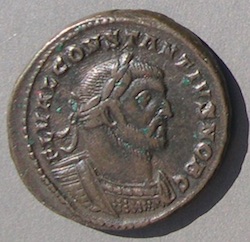
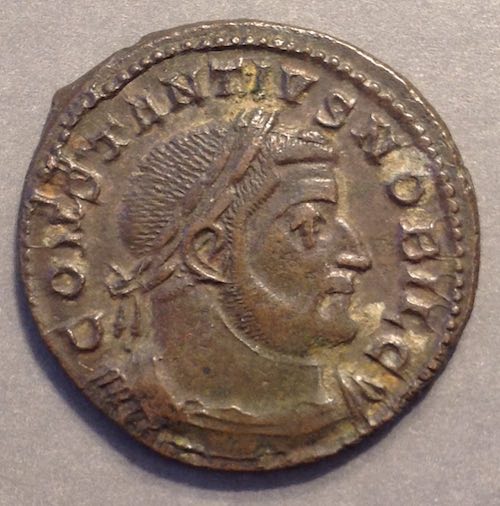
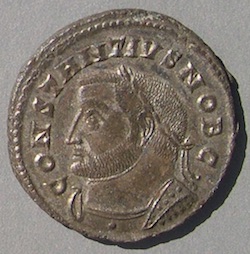
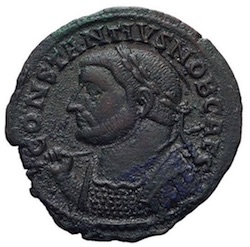
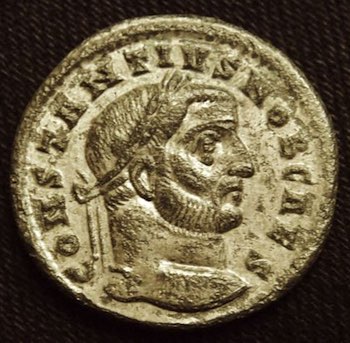
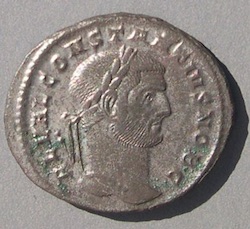
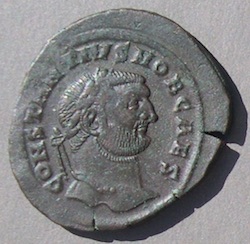
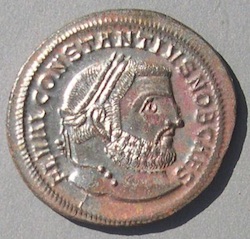
Constantius I, Roman Emperor AD 293-306. GENIO POPVLI ROMANI
Caesar of the first tetrarchy of the Roman Empire, 293-305, and Augustus of the second, 305-306.
(Go to the page of folles of Diocletian, Maximian, Galerius, or other rulers. Folles by mint.)
Roman coins ("folles") of the common GENIO POPVLI ROMANI type from various mints. Each has
Genius standing left with a (small) modiusn1 on his head and holding a patera and cornucopia, naked but for a cloak ("chlamys") over his left shoulder and hanging down behind the cornucopia.
What's new? 2025, Jan 21: Constantius as Caesar at Nicomedia with bull neck and mintmark SMN.
2024, Dec. 4: Constantius as Caesar issued by Domitius Domitianus at Alexandria.
2024, July 17: Click on the images to enlarge them.
Mints: London, Treveri (= Trier), Lugdunum (Lyons), Ticinum, Aquileia (none here), Rome, Siscia (none here), Serdica, Thessalonica (none here), Heraclea, Nicomedia, Cyzicus, Antioch, and Alexandria. [Carthage and Ostia are also in RIC volume VI, but neither minted this type.]
(Click the obverse image to go to a larger image of both sides and its description.)
 |
 |
 |
 |
| London | Trier | Lyons | Lyons |
 |
 |
 |
 |
| Ticinum | Rome | Rome | Serdica |
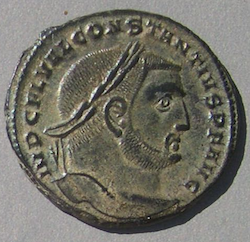 |
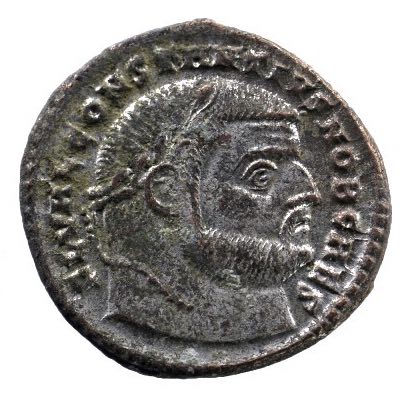 |
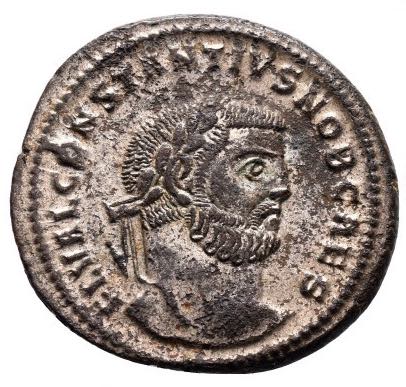 |
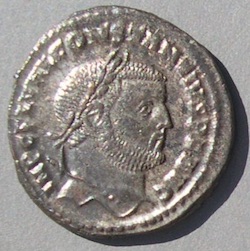 |
| Heraclea, as Augustus | Nicomedia | Cyzicus, as Caesar | Cyzicus, as Augustus |
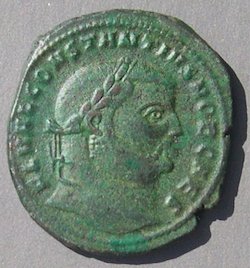 |
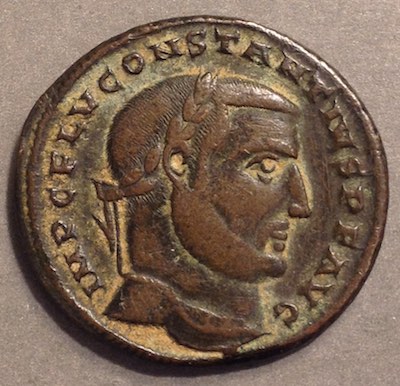 |
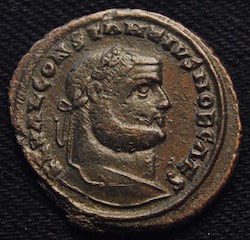 |
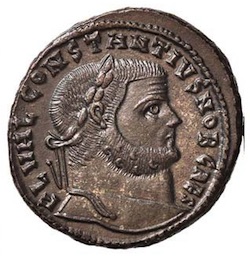 |
| Antioch, as Caesar | Antioch, as Augustus | Alexandria | Alexandria |
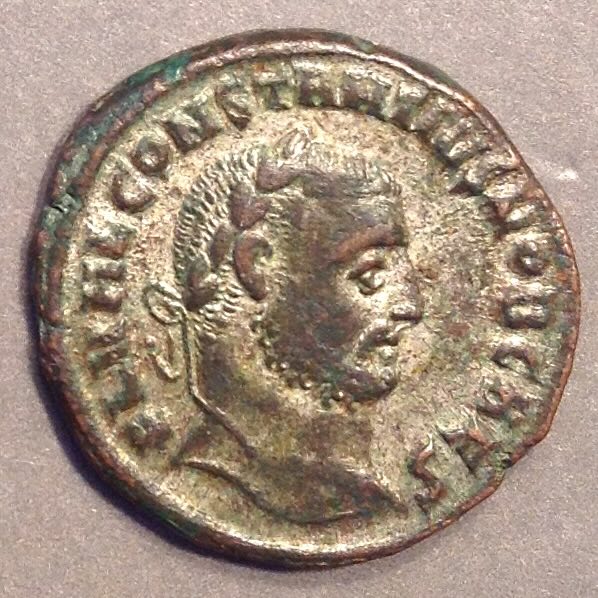 |
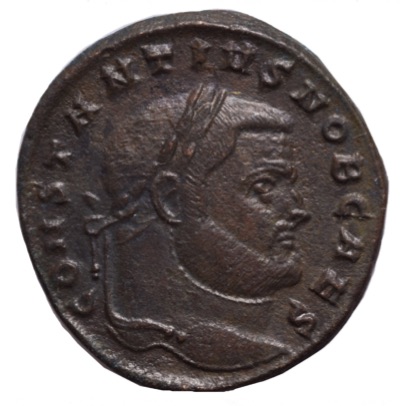 |
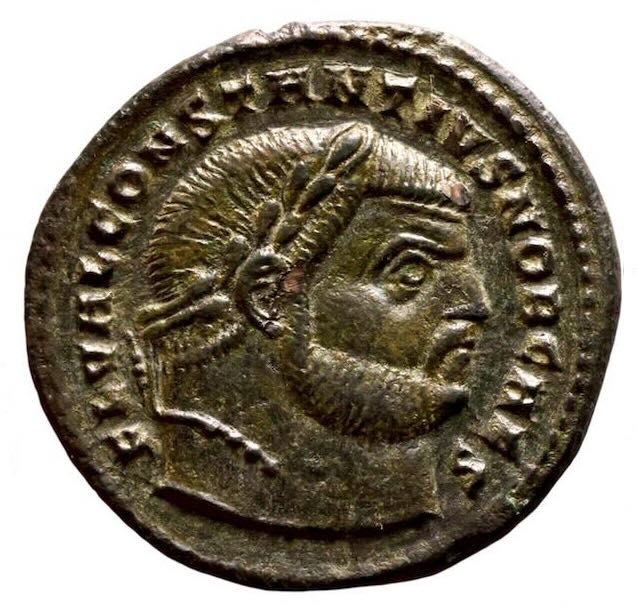 |
|
Alexandria, under |
Aquileia | Nicomedia |
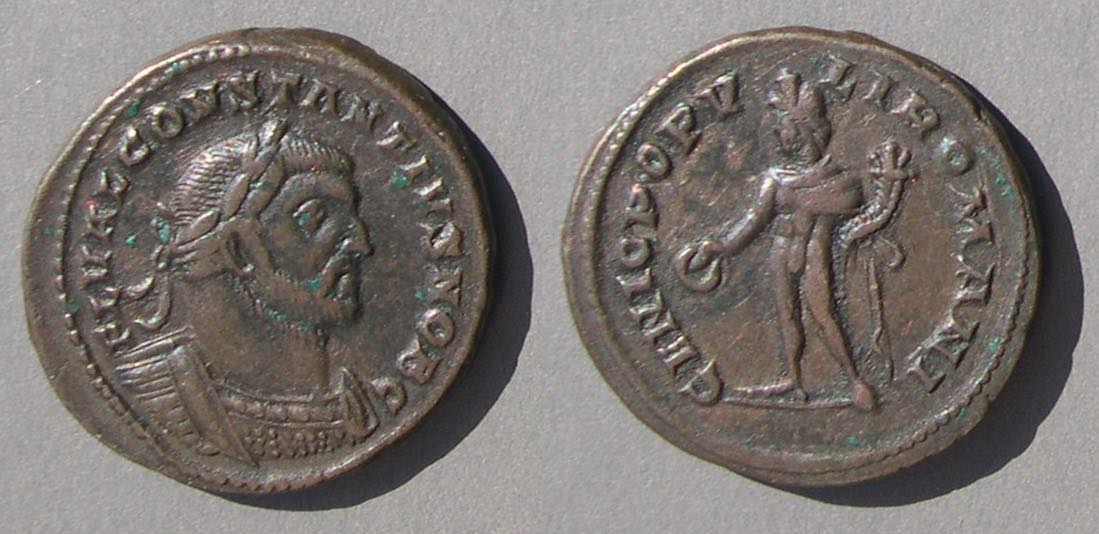 Constantius as Caesar
Constantius as Caesar
London
27 mm. 9.20 grams
FL VAL CONSTANTIVS NOB C
nothing in exergue
RIC London 20 "c. 300-302"
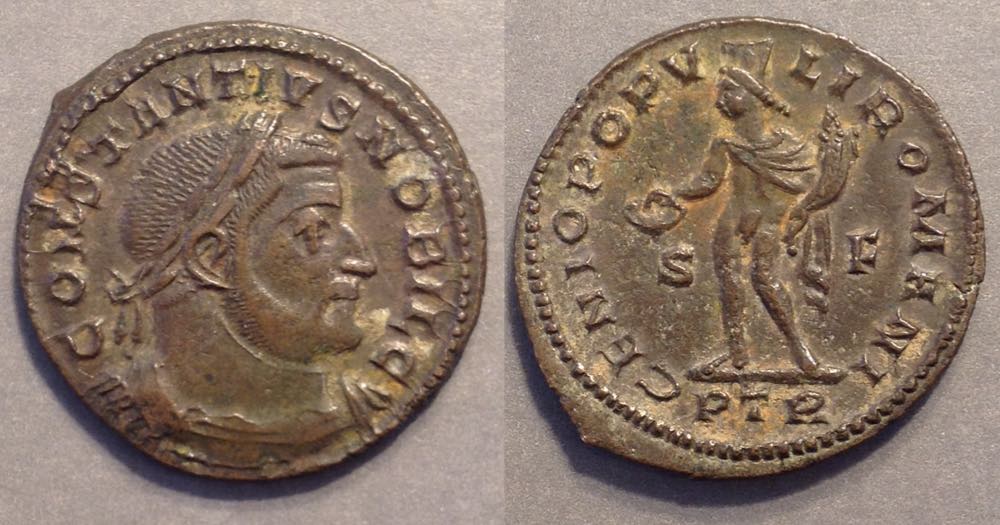 Constantius as Caesar
Constantius as Caesar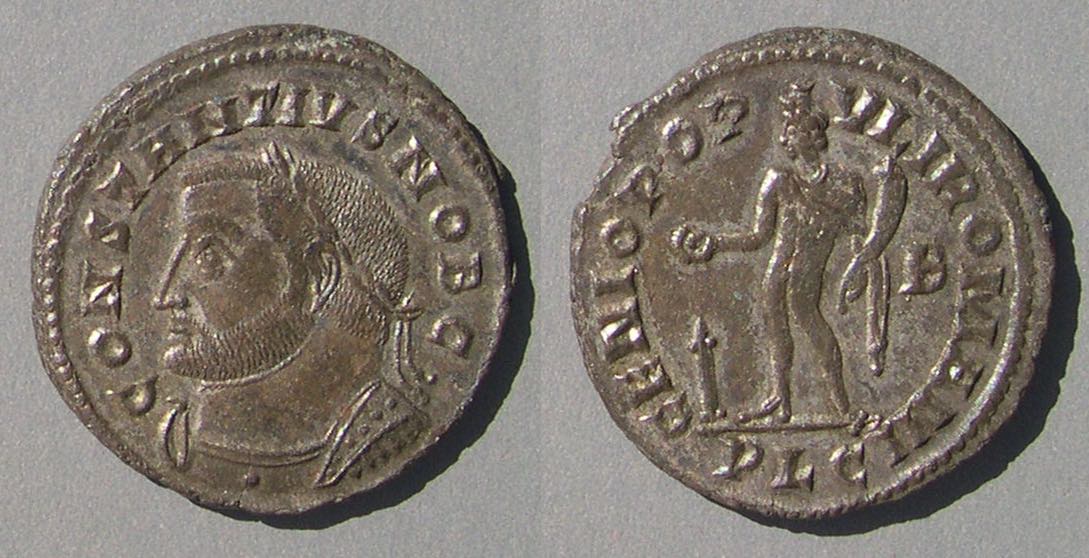 Constantius as Caesar
Constantius as Caesar
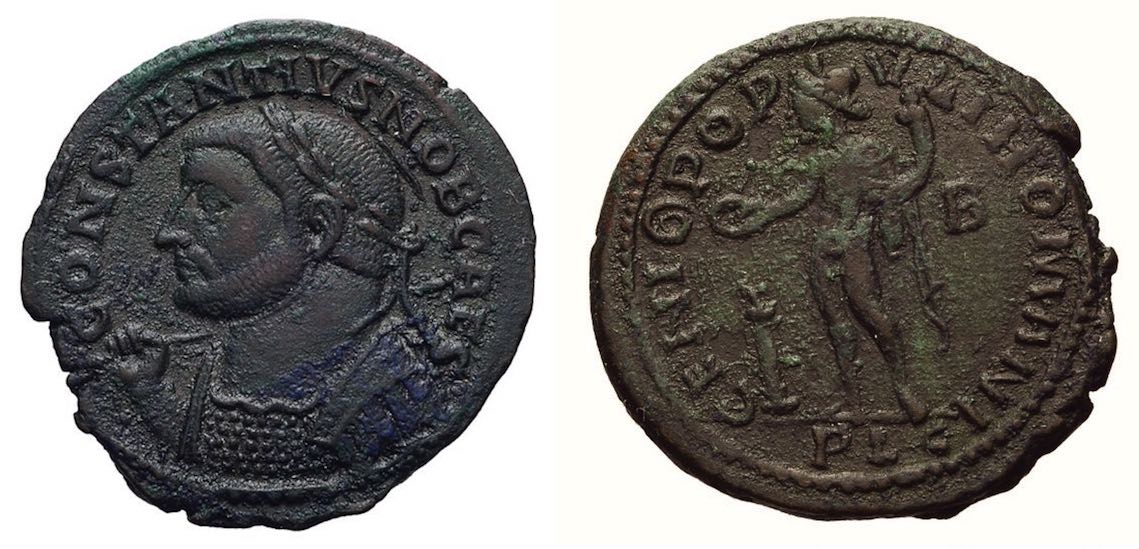 Constantius as Caesar
Constantius as Caesar
Lyons
29-28 mm. 10.65 grams.
CONSTANTIVS NOB CAES, bust left, laureate and cuirassed,
holding scepter over far shoulder
altar left, B in right field
PLG in exergue
RIC Lyons 144a "c. 301-303"
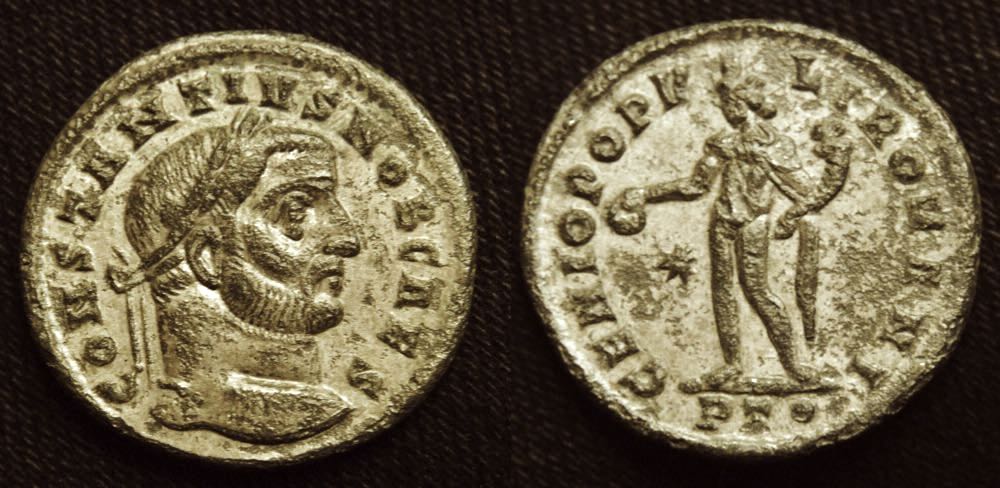 Constantius as Caesar
Constantius as Caesar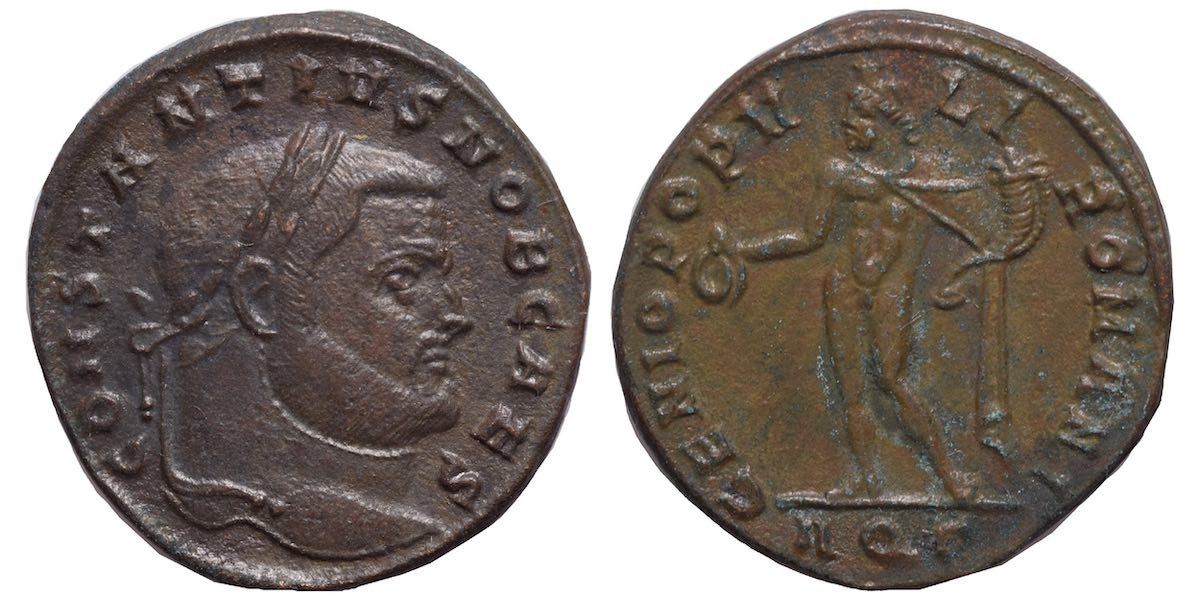 Constantius as Caesar
Constantius as Caesar
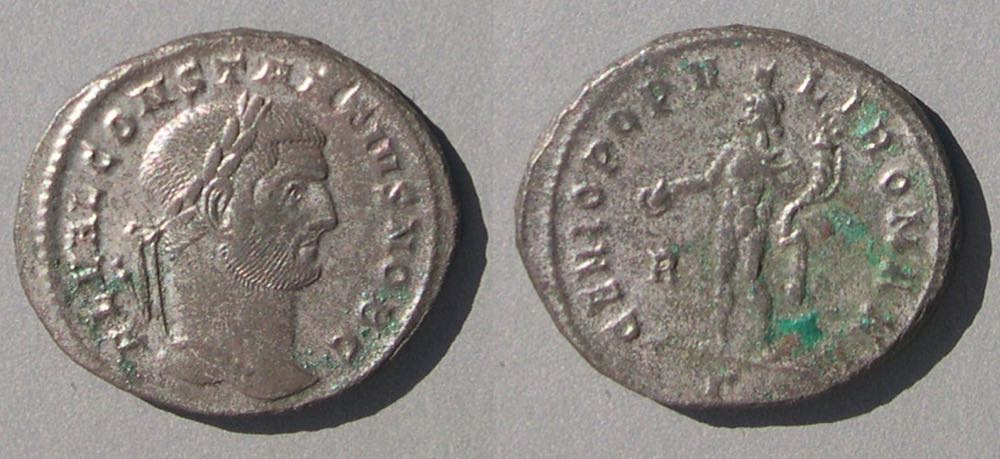 Constantius as Caesar
Constantius as Caesar
Rome
28-25 mm. 10.86 grams.
FL VAL CONSTANTIVS NOB C, laureate head
R in left field
Γ in exergue
RIC Rome 66a "c. 296-297"
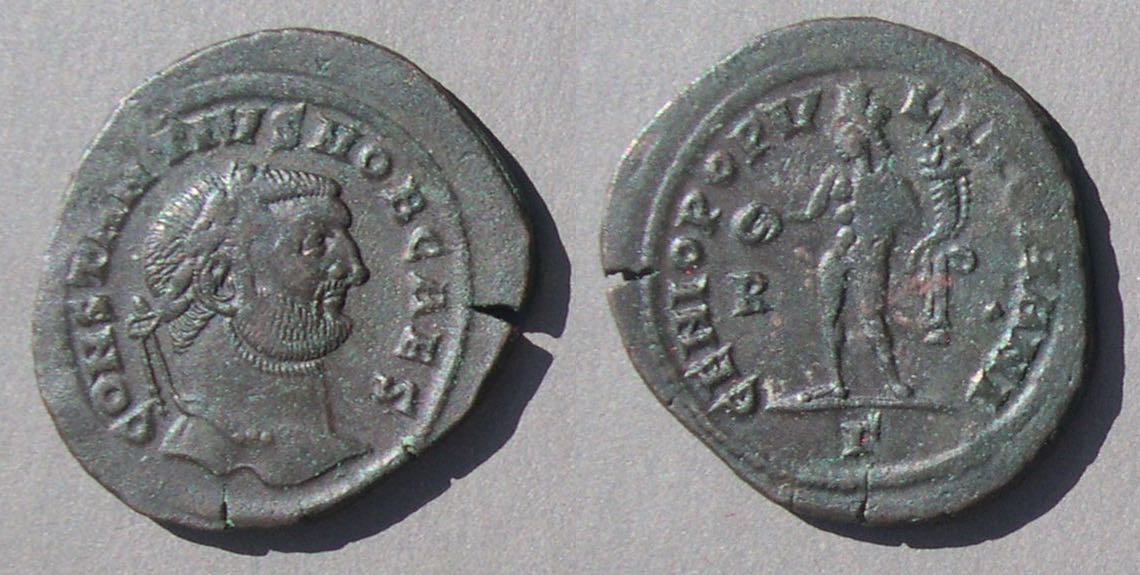 Constantius as Caesar
Constantius as Caesar
Rome
29-27 mm. 9.70 grams.
CONSTANTIVS NOB CAES, laureate head
R in left field
Γ in exergue
RIC Rome 67a "c. 296-297"
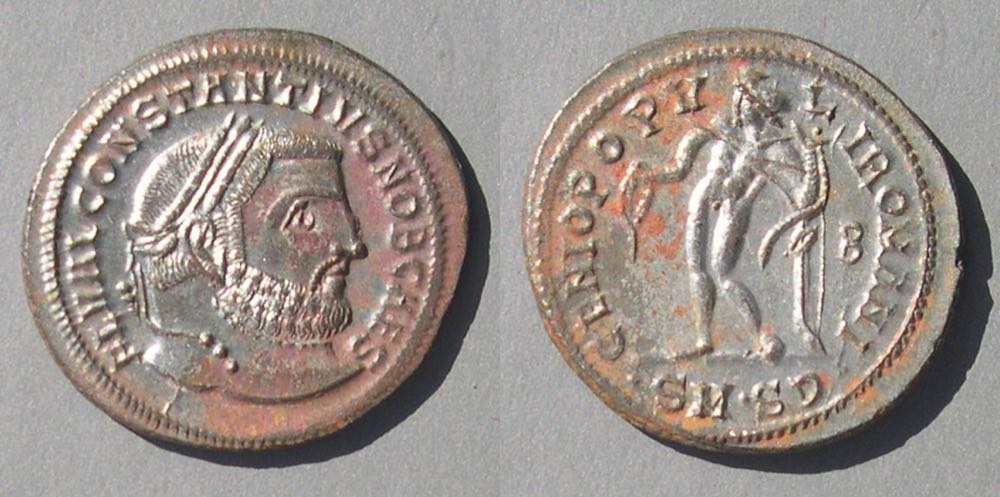 Constantius as Caesar
Constantius as Caesar
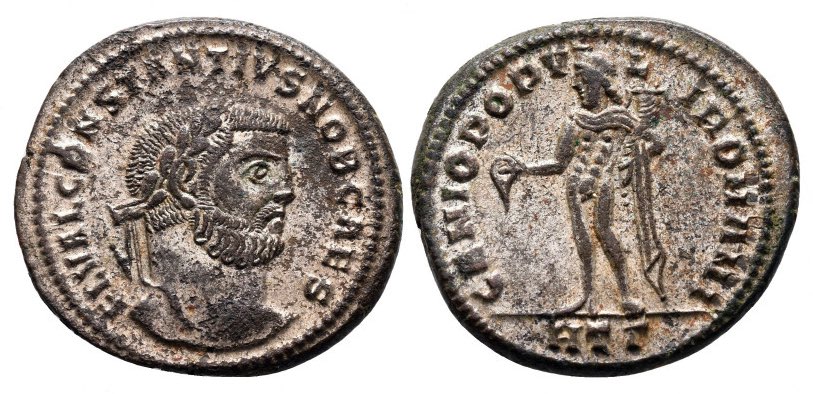
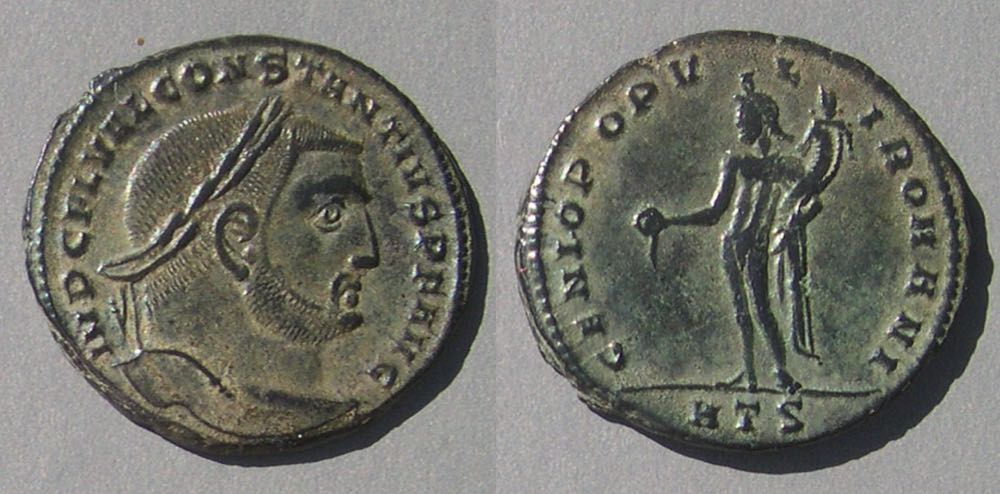
Constantius as Augustus
Heraclea Thracia
27-25 mm. 8.77 grams.
IMP C FL VAL CONSTANTIVS PF AVG, laureate head
HTS in exergue
RIC Heraclea 24a "1 May 305-25 July 306" (i.e. as Augustus)
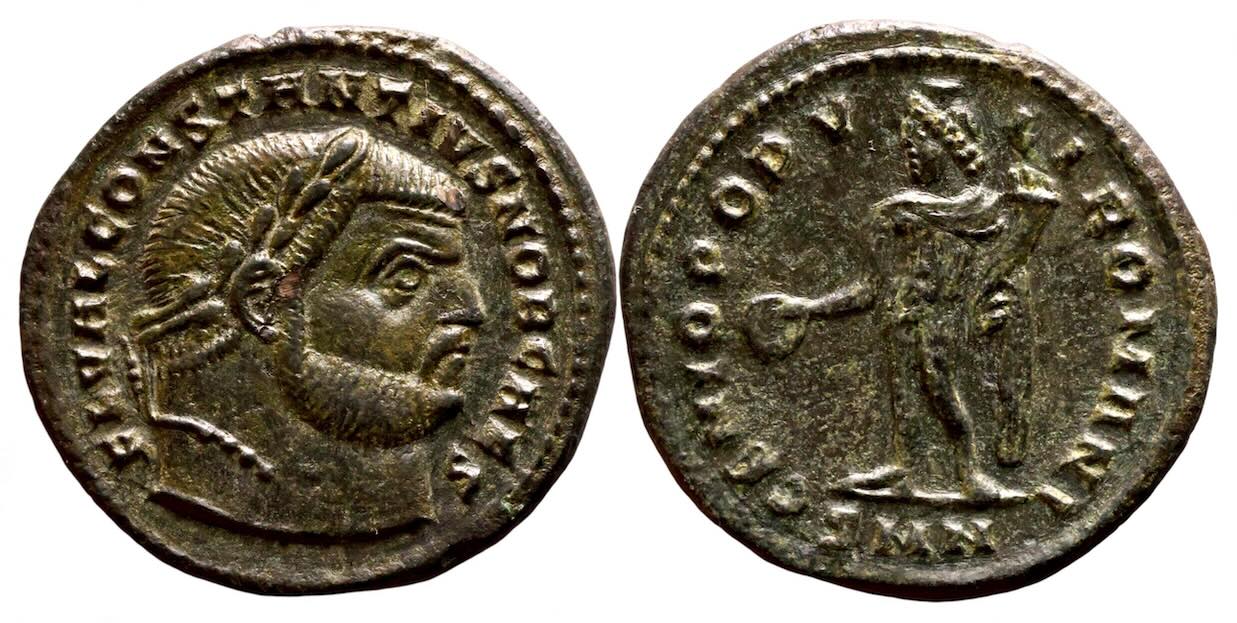 Constantius as Caesar
Constantius as CaesarConstantius as Caesar
Nicomedia
27-26 mm. 8.26 grams.
FL VAL CONSTANTIVS NOB CAES
SMNB in exergue
RIC Nicomedia 30a "c. 303-4"
Sear IV 14063
Note the "bull neck" found at Nicomedia on portraits of the the tetrarchs.
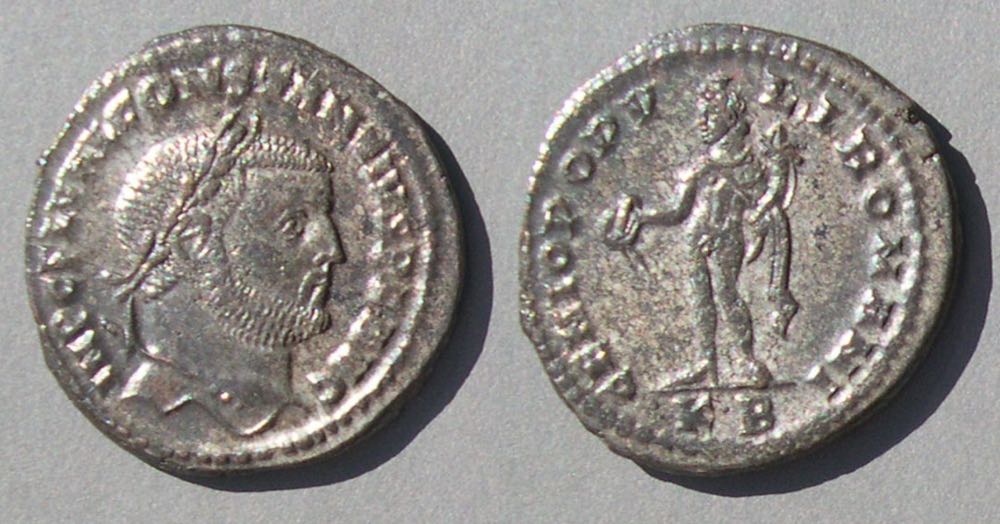
Constantius as Augustus
Cyzicus
27 mm. 8.83 grams.
IMP C FL VAL CONSTANTIVS PF AVG, laureate head
KB in exergue
RIC Cyzicus 21a "305-306" (i.e. as Augustus)
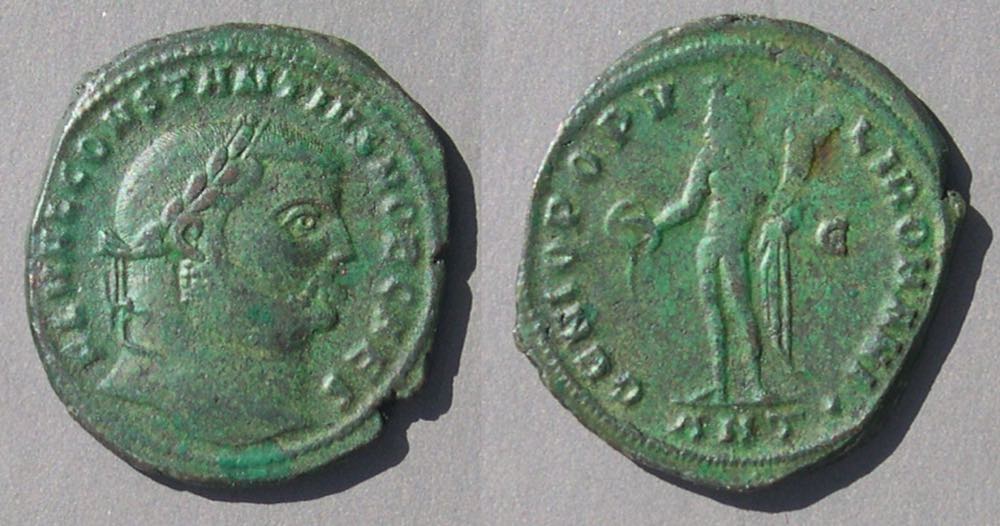
Constantius as Augustus
Antioch
27-26 mm. 9.91 grams.
IMP C FL V CONSTANTIVS PF AVG
Z in right field
ANT : in exergue
RIC Antioch 74a "c. 306"
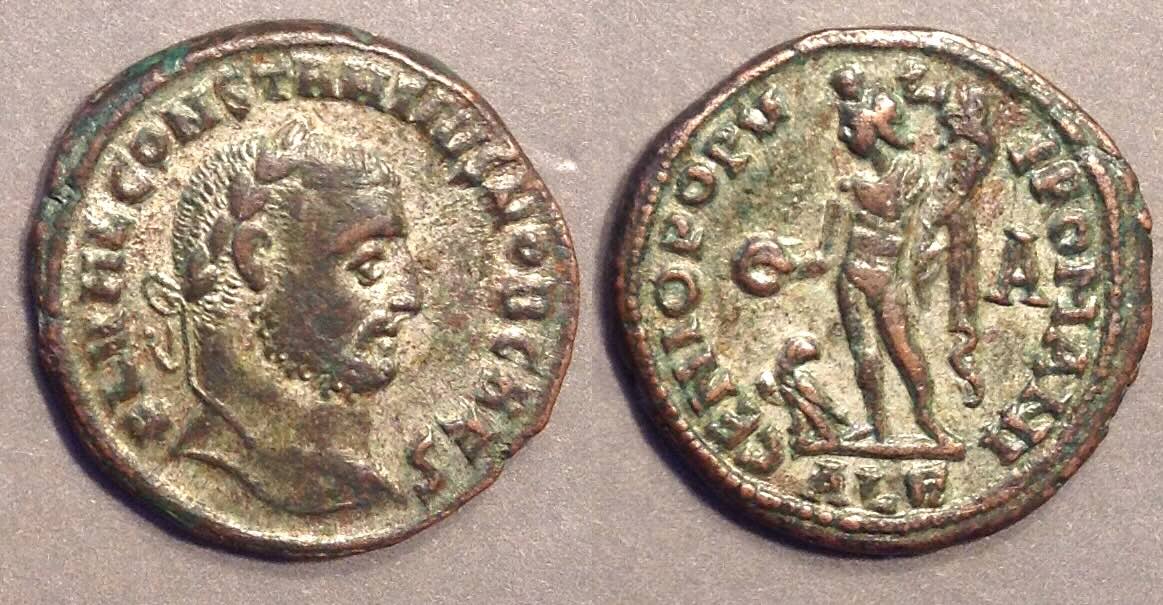
Constantius as Caesar, issued by the usurper Domitius Domitianus
Alexandria
26-25 mm. 9.44 grams.
FL VAL CONSTANTIVS NOB CAES
XX in left field A over I in right field
ALE in exergue, eagle at feet of Genius, which is what distinguishes coins issued by Domitius Domitianus.
RIC Alexandria 21a "c. 295-6" [The dates of the reign of Domitius Domitianus are disputed.]
Constantius as Caesar
Alexandria
28-25 mm. 10.86 grams.
FL VAL CONSTANTIVS NOB CAES
XX in left field A over I in right field
ALE in exergue
RIC Alexandria 33a "c. 301"
The revival of the mark "XXI" suggests Diocletian's Edict of Maximum Prices was accompanied by an attempt to assure the people that the coins had the composition introduced by Aurelian, "20 parts copper and one part silver" (nearly 5% silver). Since silver was worth 80 times the value of copper, every percent mattered to the intrinsic value of the coin.
Constantius as Caesar
Alexandria
27-24 mm. 11.42 grams.
FL VAL CONSTANTIVS NOB CAES
Note the curls in his beard. Curls only appear on coins of eastern mints.
S in left field A over P in right field
ALE in exergue
RIC Alexandria 35a "c. 302-303"
Notes
Note 1. RIC makes a distinction between a "modius on head" 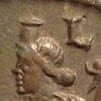 and a "head towered"
and a "head towered"  . Often the headdress is somewhere in between these examples and it is so hard to draw the line that I have decided not to attempt to make the distinction. It is not obvious it is an meaningful difference.
. Often the headdress is somewhere in between these examples and it is so hard to draw the line that I have decided not to attempt to make the distinction. It is not obvious it is an meaningful difference.
Go to the next page on folles of Galerius.
Go to the page of folles of Diocletian, Maximian, Galerius, or other rulers.
Go to the Table of Contents of this educational site.